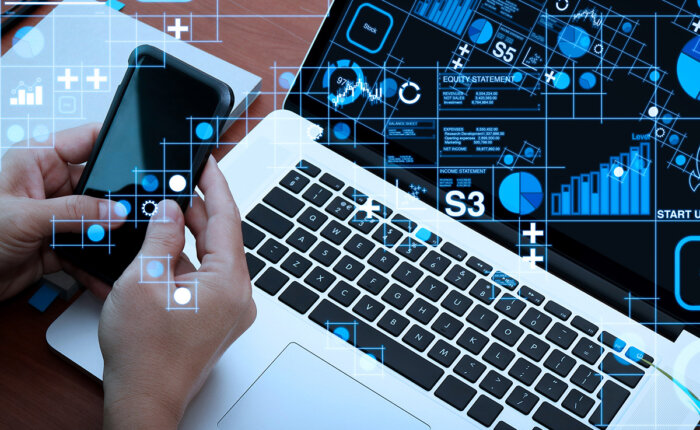Artificial Intelligence would not be at the point it is now without the role of software developers and engineers. They are the people who code the AI tools, effectively giving instructions to tell them what to do. What could be a more AI-proof career than one that actually runs AI?
Coding produces a series of steps and decisions that software follows to create the end result. AI, on the other hand, consults vast libraries of data to build its own result. It is not always easy to predict how AI systems will come to this result because they effectively have the entire internet at their disposal, along with anything else that has been fed in by the engineers. An AI system could conceivably answer the same question differently each time it is asked.
Along with initial coding, software engineers are responsible for fixing any errors and continually updating the software that runs the programmes. They need to fine-tune the AI product’s behaviour, usually by altering commands to optimise results and ensure best practices. They must also make sure controls are in place to ensure ethical behaviour, particularly when a product they are working on will be on general release to the public, such as an in-home assistant like an Amazon Echo device. This may include the release of updates and security patches to software as and when required.
It makes complete sense that software developers would create some of this AI for themselves, to assist them in their own roles. They have the clearest idea of exactly what they need to make their roles more efficient, and so have created AI that can suggest code optimisations, identify bugs and even predict the effects of changes in a system across an organisation, or even globally.
Considering the different aspects of software engineering from the initial design and coding, through to debugging, maintenance and testing, then further down the line to distribution and migration, AI can be put to work across all these stages to improve performance and enhance results.
From the most basic of tasks, such as the automation and speeding up of repetitive coding, to predicting patterns, potential bugs or spotting vulnerabilities, AI can play an essential part in the safety and security of applications and systems, while improving productivity and enabling advancements to be made at a faster pace.
Where it may fall down is on the customisation side. If an AI product is commercial, being placed in a vehicle or a home for a customer, it may be difficult to meet complex requirements exactly. Anyone who has experimented with an AI assistant will know that there are often misunderstandings or times when the system will draw a complete blank and apologise because it doesn’t understand the command. Even though more complex routines can be programmed, it relies on the human operating the system to remember whether it is the ‘light’ or the ‘lamp’ that should be turned on because the assistant won’t understand that the two words refer to the same device.
Another question for those producing code commercially using AI tools is, ‘Who owns that code?’ If ChatGPT’s AI helps write your app, does that app coding still belong to you?
Software engineers now have an expanded remit that includes a duty of care that goes beyond coding and debugging. They are the guardians of the AI systems they have built and are the teachers who not only can teach others how to use the systems but teach the systems themselves to behave in the ways in which the business requires them to. Therefore, it is incumbent upon these engineers to ensure that AI tech is ethically developed and implemented.
Their role now includes the need to understand the broader implications of implementing machine learning systems. Software engineers will need to stay updated with the latest in AI developments, including anything which may affect the performance of systems that are connected in any way to the internet, to ensure they harness the power of these new tools responsibly. Without these controls, connected systems are vulnerable to bugs and hacking which, depending on what the AI system is used for, could have global implications.
In effect, a symbiotic relationship is developing between Software engineers and generative AI tools. Humans will always need to be there to design, plan, install and maintain any digital systems.






